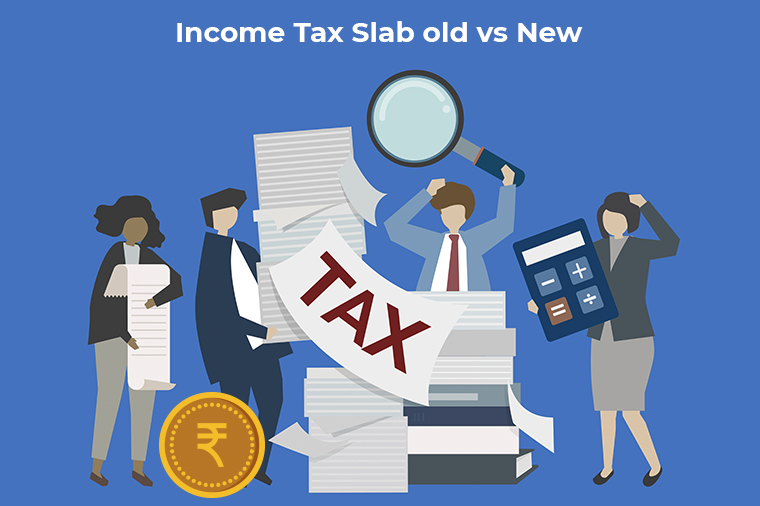Central Govt Employees Oppose Rationalised Income Tax Slabs and Old Pension Scheme from Budget
In a recent turn of events following the announcement of the latest budget, a substantial number of central government employees across India have voiced their opposition to the newly rationalized income tax slabs and the modifications to the traditional pension scheme. These changes, set to impact the financial landscape of countless workers, have sparked debates and concerns about future financial security and net income.
Overview of Budget Changes
The finance ministry, in its latest budget, introduced a series of changes aimed at simplifying the income tax process and ensuring fiscal sustainability in pension funds. Among the most significant adjustments are the rationalization of income tax slabs, which the government claims will benefit a large section of the taxpayer base by lowering the tax burden for middle-income groups. Additionally, the budget proposed a shift in the pension scheme for government employees from a defined benefit to a defined contribution model, signaling a major overhaul of the decades-old pension system.
Income Tax Slab Rationalization
Under the new system, the number of tax slabs has been reduced, and the tax rates have been adjusted to supposedly provide relief to middle-income earners. However, many central government employees argue that the new structure is disproportionately favorable to higher-income brackets and leaves the lower-income employees with a marginal improvement that does not keep pace with inflation.
"The new tax structure simplifies the system but does not necessarily mean savings for all," explains Arjun Reddy, a tax analyst. "While it claims to provide relief, the removal of various deductions and exemptions that many government employees relied on will mean that many will find themselves paying more than before."
Controversy Over Pension Scheme Changes
The shift in the pension scheme from a defined benefit, where pension payouts are guaranteed by the government, to a defined contribution model, where payouts depend on market performance, has been met with widespread criticism from the existing workforce. The defined contribution model poses a risk to employees' retirement security, especially in a volatile market.
"We have been contributing to the old pension scheme with the expectation of a secure and predictable post-retirement life. This sudden shift puts our future at uncertainty," voiced Manish Kumar, a seasoned government official. Employees are concerned that the investment risk and the burden of market fluctuations are now unfairly shifted onto them, potentially affecting their retirement funds.
Protests and Reactions
In response to these changes, numerous associations representing central government employees have organized protests and are planning to approach the court to reconsider these decisions. The All India Association of Central Government Employees, for example, has been at the forefront, organizing rallies and meetings to drum up support against the budget provisions.
"The rationalized tax slabs and changes to the pension scheme represent a significant shift in how the government plans to manage its finances at the expense of its employees," said Ramesh Patel, the association's president. "We are mobilizing to fight these changes, which we believe are unjust and detrimental to the welfare of millions of active and retired government employees."
Government's Stance
In contrast, the government defends its decisions as necessary reforms intended to streamline operations and reduce fiscal deficits. Officials argue that the rationalized tax slabs are part of a broader effort to make the tax system more efficient and less complicated for taxpayers. Regarding the pension scheme, the finance ministry insists that the changes are aimed at making pension funds more sustainable as the current system is projected to be financially untenable in the long run.
"The reforms in the tax and pension systems are tough but essential decisions made to ensure long-term sustainability and equity," stated a spokesperson from the finance ministry. "The new pension model, in particular, is expected to be more robust, aligning with global best practices where individuals have a greater say in their investment choices."
Analysis of Potential Impacts
Economic experts have mixed opinions about the impacts of these reforms. Some agree with the government’s perspective that these changes could lead to greater economic efficiency and longer-term benefits. Others believe the immediate impact on government employees and the potential risks associated with market-linked pension plans might outweigh the intended benefits.
"The shift in pension schemes is particularly contentious because it alters the fundamental expectations government employees have regarding their retirement," said Dr. Sujata Kapoor, an economist at a leading think tank. "While the market-based approach may indeed offer higher returns during good economic times, it also exposes retirees to downturns, potentially leading to inadequate retirement income."
Further Developments and Stakeholder Engagement
As central government employees and their unions continue to voice their concerns, the discourse is expected to evolve with the following developments:
Scheduled Dialogues and Negotiations
- Meetings with Government Officials: Employee associations are scheduling meetings with key government officials to discuss the adverse impacts of the new tax and pension reforms.
- Public Hearings: There are plans for public hearings to allow a broader segment of affected employees to present their views and concerns to policymakers.
Legal Approaches
- Court Petitions: Various employee groups are preparing to file petitions in high courts, challenging the constitutional validity of the sudden changes to their pension rights.
- Seeking Legal Opinions: Legal experts are being consulted to explore all possible avenues to contest the changes effectively.
Media and Public Awareness Campaigns
- Press Conferences: Regular press conferences are being held to update the media and the public on the status of the protests and the responses from the government.
- Social Media Campaigns: Utilization of platforms like Twitter, Facebook, and Instagram to raise awareness and garner public support.
Economic and Social Implications of the Reforms
Short-Term Impacts
- Reduced Disposable Income: For some government employees, the new tax regime may lead to a decrease in take-home pay due to the elimination of various deductions.
- Uncertainty Over Retirement Benefits: With the shift to a defined contribution pension plan, employees face uncertainty regarding their retirement savings.
Long-Term Impacts
- Potential Increase in Pension Fund Sustainability: The government argues that the new system will ensure the long-term sustainability of pension funds.
- Risk of Inadequate Pension Due to Market Volatility: Employees' pensions are subject to market risks, which could lead to inadequate funds during economic downturns.
Policy Alternatives and Recommendations
Suggestions from Financial Experts
- Hybrid Pension Model: Some experts suggest a hybrid model that combines features of both defined benefit and defined contribution schemes to balance risk and security.
- Revised Tax Slabs: Proposals for more progressive tax slabs that ensure higher earners contribute more, alleviating the burden on lower-income employees.
Union Proposals
- Gradual Implementation: Unions are advocating for a more gradual implementation of pension reforms to give employees adequate time to adjust.
- Enhanced Communication: Calls for better communication and transparency from the government regarding how these changes will affect the employees' financial futures.
The contention surrounding the new budgetary changes is a pivotal moment for central government employees. It underscores the need for a balanced approach that considers the financial security of employees while addressing the economic imperatives of the nation. As negotiations continue, the outcome of this confrontation will likely have lasting implications for government policy, employee satisfaction, and the overall economic health of the country. The coming months will be crucial in shaping the future of these reforms and their acceptance among the central government workforce.




